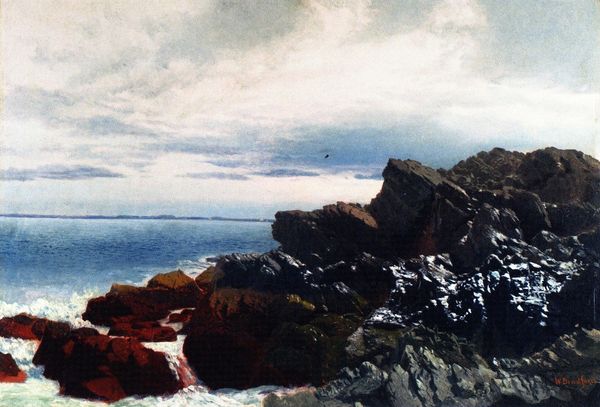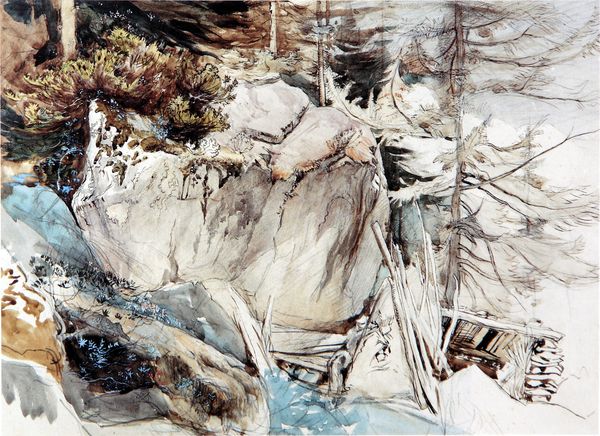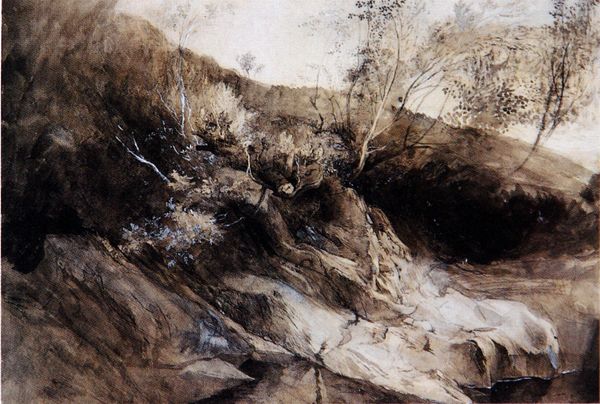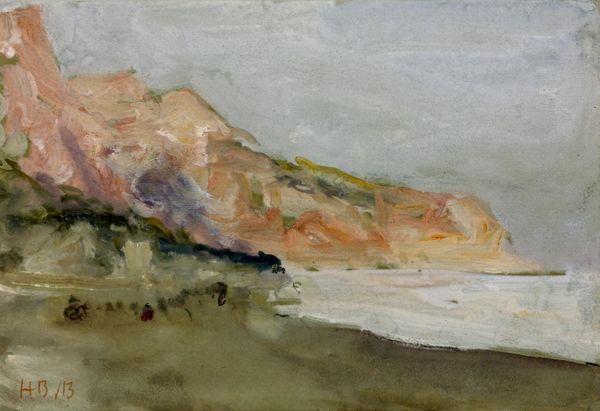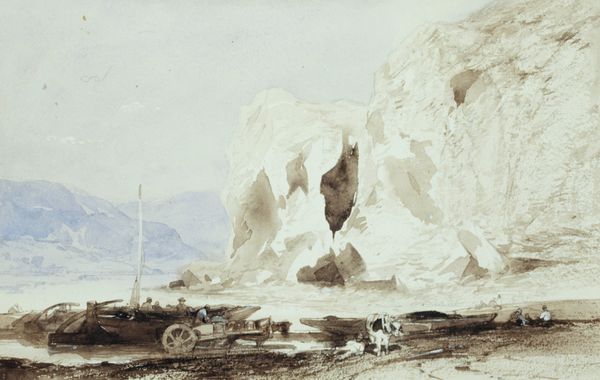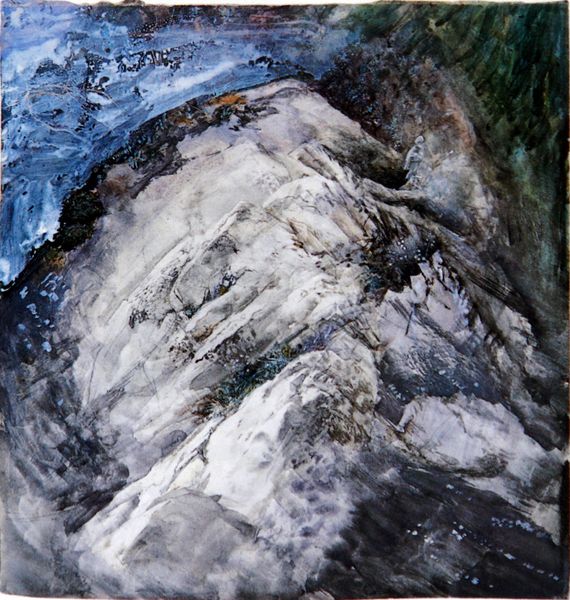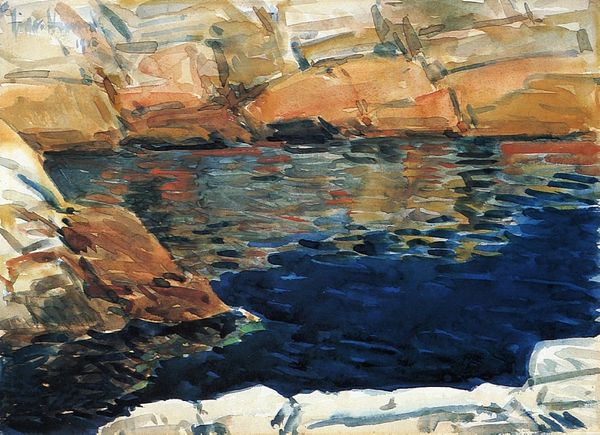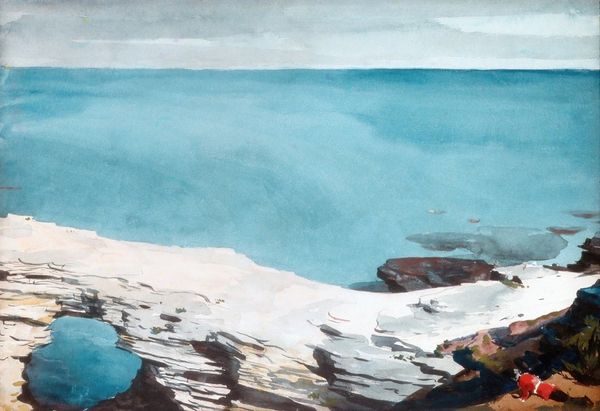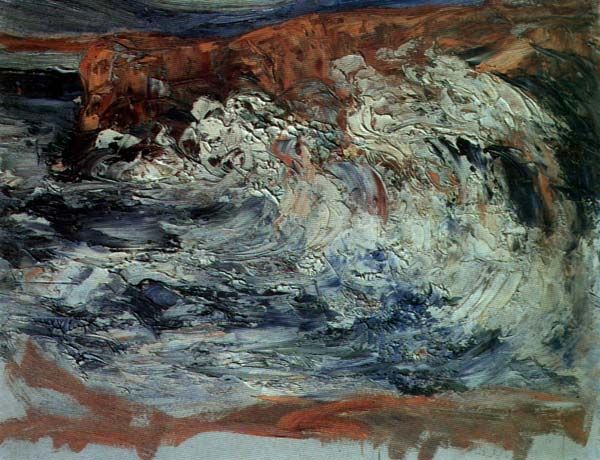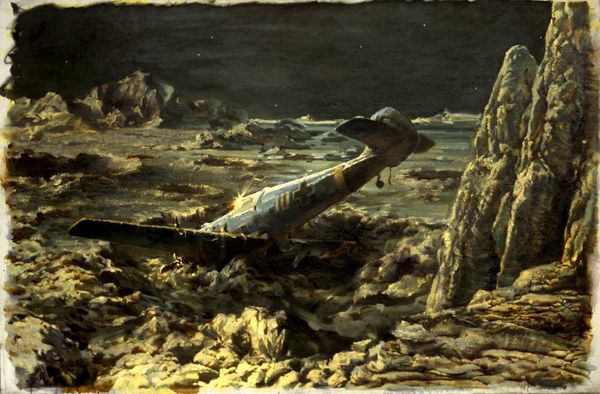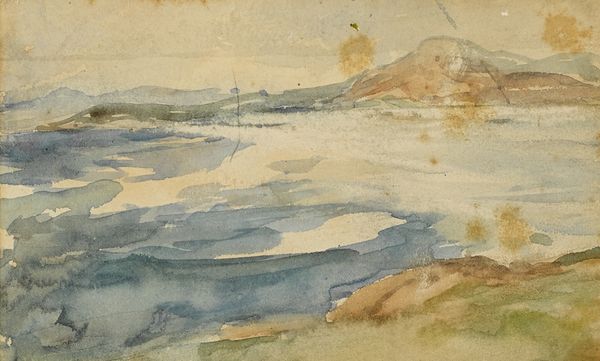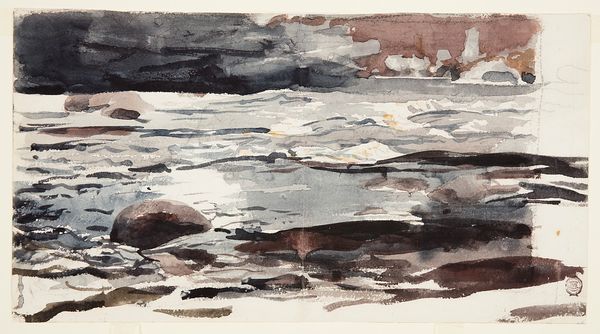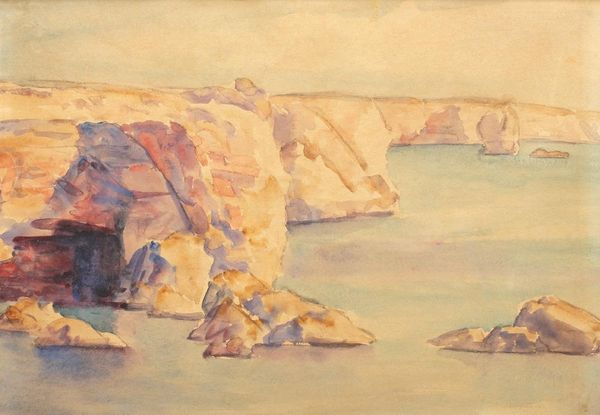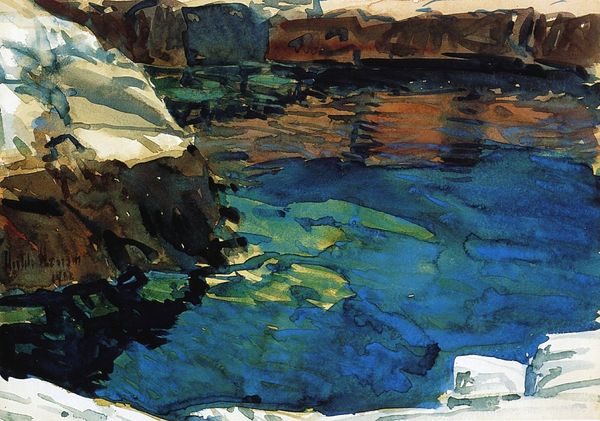
plein-air, watercolor
#
cliff
#
plein-air
#
landscape
#
charcoal drawing
#
charcoal art
#
oil painting
#
watercolor
#
rock
#
romanticism
#
cityscape
#
realism
Copyright: Public domain
John Ruskin created "Coast Scene near Dunbar" in 1847 using watercolor. Ruskin, living in Victorian England, was deeply concerned with the relationship between society and the environment. In this piece, the rugged, natural forms of the Scottish coast take center stage, emphasizing the sublime power of nature. Ruskin's choice to depict the landscape without human figures is a commentary on the impact of industrialization on the natural world, especially in Scotland. As industrialization grew, so too did the divide between the wealthy landowners and the working class, who increasingly faced displacement and economic hardship. Ruskin's artistic focus on untouched landscapes served as both an aesthetic and social statement, lamenting the loss of a pre-industrial way of life. By portraying the timeless beauty of the coast, Ruskin invites us to reflect on our relationship with nature, and the emotional and ethical responsibilities that come with it.
Comments
No comments
Be the first to comment and join the conversation on the ultimate creative platform.
